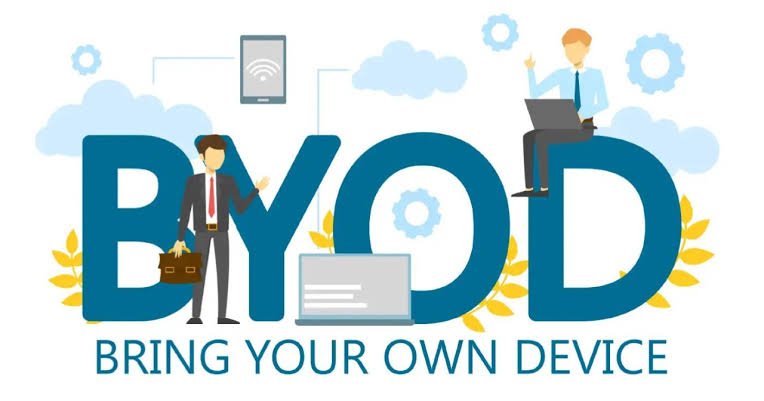Blog
Mecca Bingo: A Comprehensive Look at the UK Leading Bingo Operator

In the vibrant world of entertainment, few names resonate as deeply within the UK as Mecca Bingo. With a history spanning over half a century, Mecca Bingo has established itself as a cornerstone of British leisure culture, offering fun, excitement, and community spirit to millions. This article delves into the rich history, cultural impact, and future prospects of Mecca Bingo, exploring why it remains a beloved institution across the nation.
The Origins of Mecca Bingo
Mecca Bingo’s story begins in the 1960s, a period characterized by a burgeoning interest in bingo as a popular pastime. The brand was founded by Eric Morley, a man with a keen eye for entertainment. Morley’s vision was to create a space where people could gather, socialize, and enjoy the thrill of bingo. This vision materialized with the opening of the first Mecca Bingo club in London, which quickly became a hit.
The timing of Mecca Bingo’s inception was fortuitous. The post-war era in the UK saw a rise in disposable income and leisure time, creating a perfect environment for bingo to flourish. Mecca Bingo capitalized on this by offering a unique blend of entertainment that combined the excitement of the game with the camaraderie of a social gathering.
The Growth and Expansion
Throughout the decades, Mecca Bingo grew exponentially, expanding its footprint across the UK. By the 1980s, it had become synonymous with bingo, boasting a network of clubs in almost every major town and city. The brand’s success can be attributed to its unwavering commitment to providing a high-quality experience for its patrons. From the comfortable seating and friendly staff to the well-maintained facilities, every aspect of Mecca Bingo clubs was designed with the customer in mind.
One of the key factors behind Mecca Bingo’s enduring popularity is its ability to adapt to changing times. The 1990s and early 2000s saw significant shifts in the entertainment landscape, with the advent of digital technology and the internet revolutionizing how people spent their leisure time. Mecca was quick to embrace these changes, launching an online platform that allowed players to enjoy their favorite game from the comfort of their homes.
The Online Revolution
The transition to online bingo marked a significant turning point for Mecca Bingo. The brand’s online presence has grown to become one of the leading platforms in the industry, offering a wide range of games, promotions, and community features. The online platform provides an immersive experience, with high-quality graphics, interactive chat rooms, and live hosts that replicate the atmosphere of a physical bingo hall.
Mecca Bingo’s online success is not just about the convenience of playing from home; it also reflects the brand’s commitment to innovation. The platform regularly introduces new game formats, themed events, and exclusive promotions, ensuring that there is always something fresh and exciting for players. This focus on innovation has helped Mecca Bingo attract a new generation of players while retaining its loyal customer base.
The Community Aspect
One of the defining features of Mecca Bingo is its strong sense of community. Whether in a physical club or online, Mecca creates an environment where people can connect, socialize, and form lasting friendships. The chat rooms in the online platform are a testament to this, with players often engaging in lively conversations while enjoying their games.
Mecca Bingo also plays an active role in the broader community through various charitable initiatives. The brand has a long-standing partnership with Carers Trust, a UK charity that supports unpaid carers. Through fundraising events and donations, Mecca Bingo has raised significant funds for the charity, helping to make a positive impact on the lives of carers across the country.
Challenges and Adaptations
Like any business, Mecca Bingo has faced its share of challenges. The COVID-19 pandemic, for instance, had a profound impact on the entire entertainment industry, including bingo halls. With physical clubs forced to close temporarily, Mecca Bingo had to rely heavily on its online platform to keep the community engaged.
The brand’s swift adaptation to the pandemic highlights its resilience and ability to navigate uncertain times. Virtual events, online tournaments, and innovative digital campaigns ensured that players could continue to enjoy the Mecca Bingo experience despite the restrictions. As restrictions eased, Bingo was able to reopen its clubs, implementing strict safety measures to protect both staff and customers.
The Future of Mecca Bingo
Looking ahead, Mecca Bingo shows no signs of slowing down. The brand continues to explore new opportunities for growth and innovation, both online and offline. One area of focus is the integration of cutting-edge technology, such as virtual reality (VR) and augmented reality (AR), to create even more immersive and engaging experiences for players.
Sustainability is another key consideration for Mecca Bingo’s future. The brand is committed to reducing its environmental impact and promoting responsible gaming practices. Initiatives such as energy-efficient club designs, digital-only marketing strategies, and partnerships with responsible gaming organizations reflect Mecca Bingo’s dedication to creating a positive and sustainable future.
Conclusion
Mecca Bingo’s journey from a single club in London to a nationwide phenomenon is a testament to its enduring appeal and ability to evolve with the times. Its success lies not only in the excitement of the game but also in the sense of community and belonging it fosters among its players. As Mecca Bingo continues to innovate and adapt, it remains a beloved institution that brings joy and connection to millions of people across the UK.
Whether you’re a seasoned bingo enthusiast or a newcomer looking for a fun and social pastime, Mecca Bingo offers something for everyone. Its rich history, commitment to innovation, and focus on community ensure that it will continue to be a cherished part of British culture for many years to come. Enjoy Hint Today.
Blog
Effective BYOD Strategies for the Modern Workplace


Introduction to BYOD
Bring Your Device (BYOD) guidelines are spreading throughout the globe’s workplaces. Under these policies, employees are permitted to use personal gadgets, including tablets, laptops, and cellphones, for work. Adopting BYOD can provide various benefits but also introduces some risks and challenges. Organizations need to understand how to implement and manage these policies effectively to ensure their success. You can explore additional resources from reliable sources for further details on what BYOD entails.
Businesses continually seek ways to enhance productivity, cut costs, and improve employee satisfaction. BYOD is one strategy that can address all these needs. However, implementing a BYOD policy requires careful consideration and planning to ensure it doesn’t compromise the organization’s security and regulatory requirements.
Benefits of BYOD for Businesses
Increased Productivity
Allowing employees to use devices they are already familiar with can significantly boost productivity. Employees feel more comfortable using their devices, which can lead to increased efficiency and quicker adaptation to new software. Studies have shown that employees who use their own devices often complete tasks more quickly and with higher quality.
Cost Savings
By leveraging employees’ devices, companies can drastically reduce hardware expenses. This cost-saving measure decreases the need for company-purchased devices and reduces maintenance and support costs. The financial savings can then be redirected toward other crucial areas such as development, marketing, or employee training programs.
Enhanced Employee Satisfaction
Employees often prefer using their devices because they are accustomed to their configurations and functionalities. This comfort level can lead to higher job satisfaction and increased employee retention. The flexibility to use personal devices can also make a company more attractive to potential hires, enhancing overall talent acquisition efforts.
Challenges and Risks
Security Risks
One of the most significant challenges of a BYOD policy is ensuring company data security. Personal devices may not have the same security measures as company-issued hardware, making them vulnerable to cyber threats. Several security risks are associated with BYOD, including potential data breaches and malware infections. Maintaining comprehensive security protocols is essential to mitigate these risks.
Compliance Issues
A BYOD policy must adhere to industry standards and rules. It can be difficult to ensure that personal devices follow these rules, especially in sectors like healthcare and banking, where compliance standards are stringent. This issue needs careful attention because non-compliance can result in costly fines and harm to the company’s reputation.
Data Management Concerns
Managing data across numerous personal devices can complicate data management processes. IT teams must ensure data is accessible and secure without compromising company policies or employee privacy. Effective data management strategies are crucial for maintaining the integrity and confidentiality of sensitive information.
Implementing a BYOD Policy
Effective implementation of a BYOD policy involves several critical steps:
- Clear Usage Guidelines: Establish explicit guidelines outlining what devices are permitted, acceptable uses, and prohibited activities. Ensuring that workers know the obligations and limitations related to using their devices for work requires open communication.
- Security Protocols: Implement robust security measures, such as encryption, to protect sensitive information. Frequent security updates and patches should be mandated to keep the devices secure.
- Support and Training: Provide employees with the necessary support and training to ensure they understand and adhere to the BYOD policy. By attending regular training sessions and using available resources, employees may stay educated about emerging hazards and best practices.
Best Practices for BYOD Management
Regular Security Audits
Conduct regular security audits to identify and mitigate potential vulnerabilities in personal devices. These audits help ensure compliance with company policies and industry regulations. Regular assessments can also offer insights into the effectiveness of current security measures and areas needing improvement.
Employee Education Programs
Inform staff members of security best practices and stress the value of following the BYOD policy. Ongoing training can reduce risk and foster a security-aware culture inside the company. Incorporating interactive and engaging techniques for these kinds of seminars can greatly increase their impact.
Effective Device Management Solutions
Utilize comprehensive device management solutions to monitor and control access to company resources. These solutions can help secure data and ensure policy compliance. Mobile Device Management (MDM) and Endpoint Security can provide greater control and oversight over personal devices accessing company data.
Security Measures for BYOD
Encryption
Encrypting data on personal devices is essential to protect sensitive information from unauthorized access. Ensure all data stored on devices and transmitted between devices is encrypted. Encryption provides an additional layer of security, making it more challenging for malicious actors to access company data.
Remote Wipe Capabilities
Enable remote wipe capabilities to protect data from device loss or theft. This feature allows IT teams to remotely delete data from a device, preventing unauthorized access to company information. Remote wipes ensure that the data remains protected even if a device falls into the wrong hands.
Real-world Examples
Several organizations have successfully implemented BYOD policies, showcasing the potential benefits and challenges. For instance, a leading tech firm noted a 15% increase in productivity after adopting a BYOD strategy. This real-world example highlights how a well-planned BYOD policy can drive efficiency and employee satisfaction. Another example is a healthcare provider that improved patient care by enabling doctors to access health records through their tablets, demonstrating how BYOD can enhance operational efficiency and service delivery.
Conclusion
Adopting a BYOD policy can offer significant advantages for modern workplaces, including increased productivity, cost savings, and enhanced employee satisfaction. However, businesses must consider the associated risks carefully and implement robust security measures to protect sensitive information. Organizations can create effective strategies to successfully implement BYOD policies and maximize their potential by understanding the benefits and challenges. Balancing flexibility with security will be vital to navigating the complexities of BYOD in today’s digital age. Enjoy Hint Today.
Blog
Effective Ways to Use Dating Apps to Find Exactly What You Are Looking For


Choosing the Right Platform
The dating app industry continues to see high user engagement. Reports indicate approximately 366 million users in 2022, a significant increase from 240.9 million in 2016. This surge illustrates the broad acceptance and utilization of online dating. User preferences differ significantly by age group. Individuals aged 18-29 predominantly use Tinder, while users aged 30-64 show a preference for Match.com, which focuses on fostering serious relationships. For those over 65, eHarmony and religious dating sites tend to be more popular. This variation suggests the critical importance of selecting a platform that aligns with personal relationship objectives.
LGBTQ individuals are more likely to use dating apps than their straight counterparts. According to Pew Research, 55% of LGBTQ adults have used dating apps, whereas the figure stands at 28% for straight adults. Moreover, 21% of LGBTQ online daters have been in a committed relationship or married someone they met through a dating app, compared to 11% among straight users. This highlights the significant role dating apps play in facilitating relationships within the LGBTQ community.
User Experience and Satisfaction
User experiences on dating apps vary. Approximately 41% of users describe their experience as positive, while 32% rate theirs as negative. Another 27% found their experience to be neither positive nor negative. Men and women report similar satisfaction levels. The nature of relationships sought also affects satisfaction. Among users, 41% were exclusively looking for serious relationships, while 39% were open to both serious and casual relationships. Younger users (18-29) show a lower inclination towards seeking only serious relationships.


Dating app use can lead to “app fatigue.” According to a Forbes Health survey, 79% of Gen Z users report feelings of burnout from dating apps. The abundance of choices and the pressure to present an idealized self contribute to this fatigue. Additionally, safety remains a concern, with only 48% of U.S. adults considering online dating to be somewhat or very safe. Women, in particular, are more likely to perceive online dating as unsafe. This data underscores the necessity for improved safety measures and user education on these platforms.
Selecting a Suitable Partner
Different datings apps serve different relationship goals. Apps like eHarmony, OkCupid, Hinge, and Coffee Meets Bagel are designed to facilitate meaningful connections, making them more suitable for users seeking serious relationships. Conversely, Tinder and Grindr are more popular for casual engagements. Understanding the distinctive characteristics of these apps is crucial for choosing the right one that fits individual relationship goals. Approximately 44% of adults use dating apps to find long-term partners rather than for casual dating or hookups.
The success rate of online-formed relationships is comparable to those formed offline. SSRS reports that 61% of adults believe that relationships forged on dating sites or apps are just as successful as those begun offline. However, 34% think they are generally less successful. Among dating app users, 42% have been in a committed relationship with someone they met online. Higher success rates are noted among users aged 30-49.
When setting up a profile on a dating app, specifying what type of relationship you are seeking can prevent misunderstandings. For example, someone might be looking for a lifelong partner, another person might be interested in casual meetups, or someone could be aiming for a unique arrangement like being a sugar daddy. Being upfront about your intentions will help you connect with people who share similar goals and ensure a more fruitful interaction.
Demographic Preferences
Statistics highlight varying preferences across different demographic segments. Pew Research indicates that 19% of U.S. internet users currently use online dating platforms, and 27% have used them in the past. This usage spans various demographics, emphasizing that online dating is widely accepted among internet users. Despite this acceptance, concerns about safety and app fatigue remain pertinent issues.
Within the dating app market, certain apps maintain a dominant position. Tinder is the most popular app in the U.S. and Europe, followed by Bumble and Hinge. These apps have specific features and target different demographics, which contributes to their widespread popularity. The industry generated $5.34 billion in revenue in 2022, with Match Group accounting for $2.8 billion of that. Enjoy Hint Today.
Blog
The Benefits of Living in Small Towns: A Comprehensive Guide


Introduction
More people are considering moving to smaller towns for various reasons. This guide explores the many benefits of living in a small town, from the sense of community to access to outdoor activities. Located in California, Ojai offers a unique blend of natural beauty and a close-knit community, making it an attractive option for many.
Living in a small town can offer a range of benefits not typically found in larger cities. From a more affordable cost of living to a close-knit community, the appeal of small towns is growing. Unlike metropolitan areas, where the pace is fast and overwhelming, small towns allow residents to slow down and enjoy the simpler things in life. Whether it’s a town like Ojai or another charming locale, the essence of small-town living can be profoundly rewarding.
Sense of Community
One of the most appealing aspects of small-town living is the strong sense of community. Unlike in larger cities where anonymity is common, small towns foster close-knit relationships. For those looking to make a move, considering Ojai homes for sale could be an excellent start. Neighbors often know each other by name and look out for one another, contributing to a supportive environment. For example, in small towns, community events, local fairs, and friendly gatherings are rare in larger metropolitan areas. This particularly benefits families raising children in a nurturing environment with solid communal values and support networks.
Cost of Living
The cost of living in small towns is typically lower than in urban areas. From housing to groceries, expenses are more manageable. This can be a significant advantage for families and individuals looking to stretch their budgets further. According to a report by CNBC, people moving from large cities to smaller towns often experience a dramatic reduction in living costs, allowing them to save or invest in other areas of life. This economic advantage can be a game-changer, particularly for retirees looking to make the most of their fixed income or young families just starting.
Mental and Physical Well-being
Living in a small town can positively affect mental and physical health. Lower stress levels, less pollution, and a slower pace of life contribute to overall well-being. The proximity to nature also encourages physical activities like hiking and cycling, which are suitable for the body and mind. A BBC study shows that a slower-paced lifestyle can significantly improve mental health, reducing stress and anxiety levels. Additionally, the reduced noise and air pollution in smaller towns can lead to better respiratory health, making it a healthier environment overall.
Access to Nature and Outdoor Activities
Small towns are often surrounded by natural beauty. Living in a small town usually means easy access to outdoor adventures, whether it’s mountains, forests, or rivers. This natural accessibility fosters a lifestyle that includes regular outdoor activities, such as hiking, fishing, and camping, which are great for physical fitness and mental relaxation. The availability of these activities can also create opportunities for family bonding and community events, further enriching the quality of life in small towns.
Services and Amenities
While small towns may lack some of the services and amenities in larger cities, the trade-offs often lead to a more balanced lifestyle. The focus shifts to community-driven services, which can be more personalized and fulfilling. Many small towns also offer unique local businesses that are often family-owned and operated, providing an exceptional shopping and dining experience. These local establishments add to the town’s charm and offer residents a chance to support their community directly. The absence of large commercial chains often means higher quality and more authentic products and services. Enjoy Hint Today.
Real-Life Examples
Many people who have switched to small-town living speak of the myriad benefits they’ve experienced. For example, John and Jane Doe moved from a bustling city to a serene small town. They report improved quality of life, more robust community ties, and financial savings. Real-life stories like theirs underscore the many advantages of small-town living. Another example is a family who found their children thrived in a minor school system where teachers could offer more personalized attention. These anecdotes highlight the long-term benefits of transitioning to a smaller, more intimate community.
























